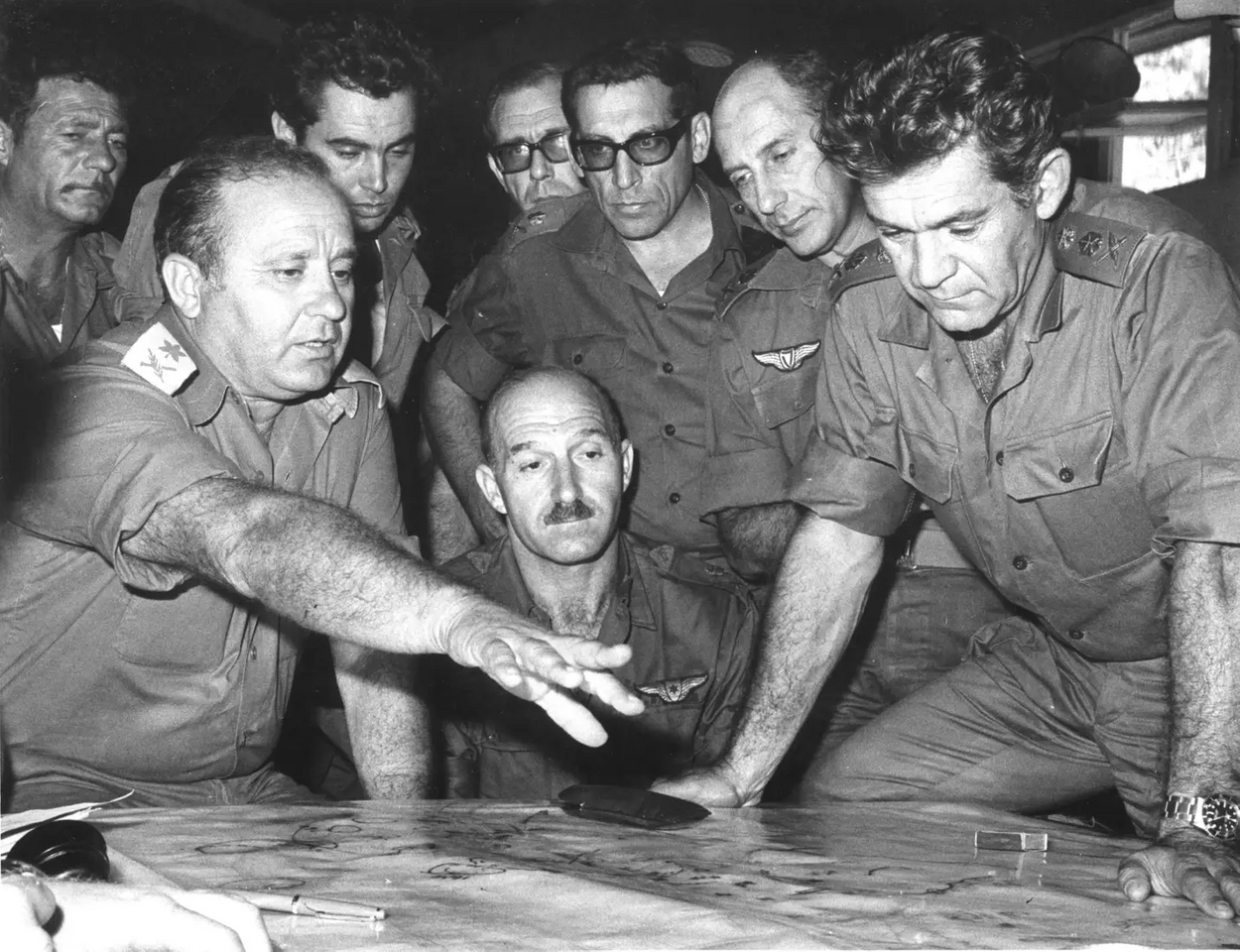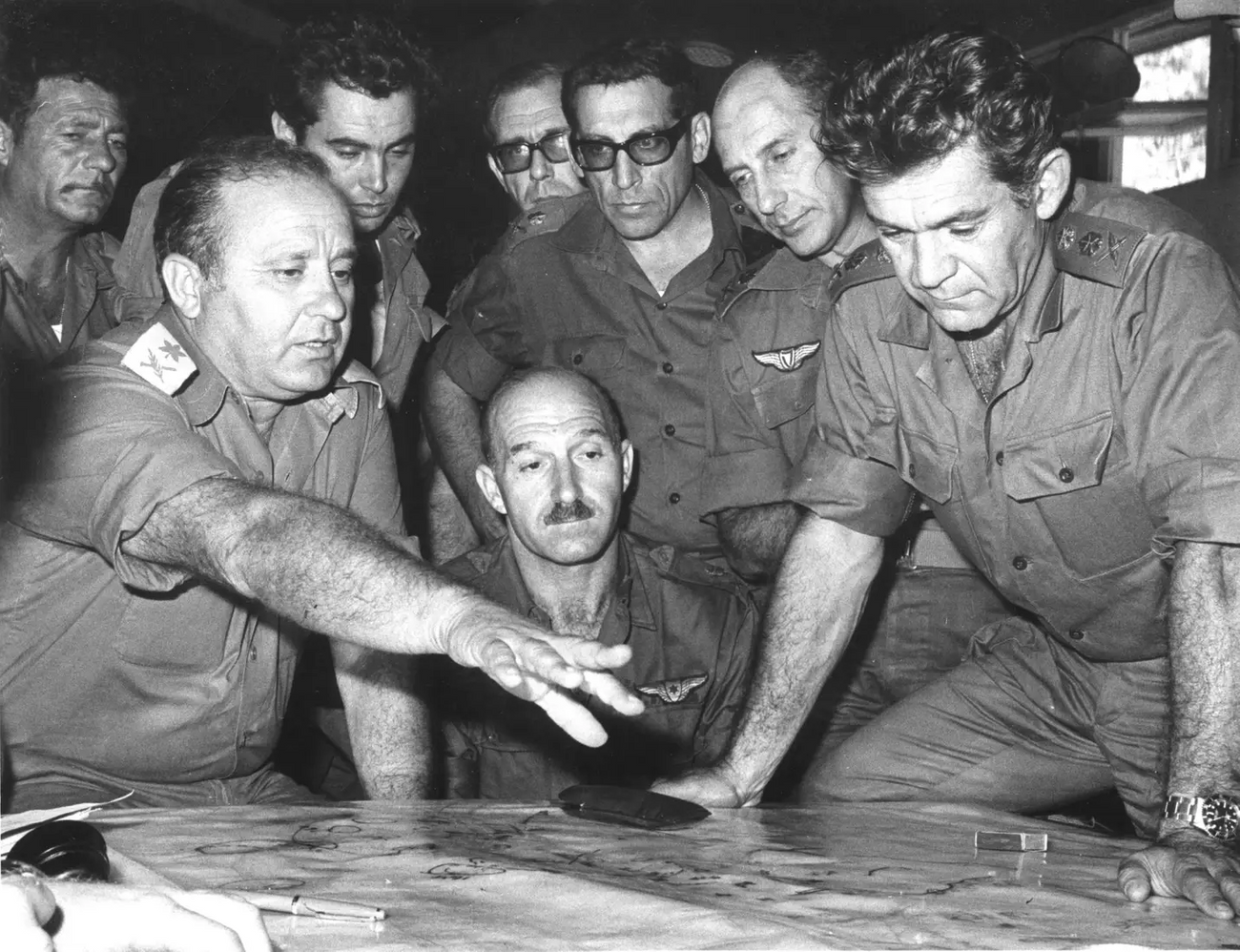A Catastrophic Intelligence Failure in the Yom Kippur War
Refusing to modify preconceived ideas in the face of hard evidence is a dangerous habit, for Israelis and also for Americans




Sometimes world events trigger very personal memories. A fragment of intelligence that was just released casts more light on the most dramatic single episode of Israel’s highly dramatic history over the past century: the sudden attack in great force of the Egyptian and Syrian armies that started on Oct. 6, 1973, and which came as a complete surprise. Reduced to a handful of men—fewer than 600 from the Mediterranean to the Red Sea, Israeli defenses facing Egypt across the Suez Canal were quickly overrun, while up on the Golan Heights it was only the heroic combat of a single armored brigade that prevented a catastrophic defeat.
The final outcome was paradoxical as war almost always is, because both Egyptians and Syrians learned that Israel really could not be defeated, not even if caught by surprise and very unprepared, though only the Egyptians were able to act accordingly, by making peace. But that happy outcome was in the future, while the present of October 1973 was shock, surprise, and initial defeat, with victories on both fronts that cost 2,569 killed and thousands more wounded.
Because the sudden attack of the Egyptian and Syrian armies was necessarily preceded by a very large buildup of forces that could not possibly have evaded detection—more and more troops, tanks, and guns assembled day by day in full view of Israeli frontline troops—as soon as the fighting ended on Oct. 24, a huge controversy exploded: How could Israel’s world-famous intelligence have failed so abysmally? Eventually a special commission of inquiry would answer that question, along with a flood of articles, memoirs, and academic studies.
Their conclusions differed only in detail: It was the charismatic head of Israeli military intelligence, Major-General Eli Zeira, who had dismissed all the warning signals because he was (rightly) convinced that Egypt could not win a war without air superiority, and therefore (wrongly) concluded that Egypt would not start a war, without considering the possibility that Egypt’s President Sadat might choose to attack the Suez Canal anyway, in order to start a diplomatic process that might regain the lost Sinai Peninsula for Egypt. His explanation for the vast gathering of troops on both the Egyptian and Syrian fronts was exactly in line with Sadat’s intent, minus the fighting: The buildup was meant to frighten the Israelis into opening talks.
That was Zeira’s “concept,” which led him to ignore all the hard information that contradicted his certainty, including the just-revealed agent report that arrived at 16:45 on Oct. 5, 1973—just over 21 hours before the Egyptian surprise attack that overran the very thin line of defenders scattered along the Suez Canal.
The message was pure “gold,” without any dross to be polished away by analysts: Soviet military advisers with their families were rushing and scrambling to board aircraft flying out of Egyptian airfields, very obviously to avoid being caught up in the fighting that was about to break out.
Instead of distributing the message to his military colleagues and political superiors, Defense Minister Moshe Dayan and Prime Minister Golda Meir, and then having to explain to them that it too was pure misdirection, Zeira simply kept the news to himself.
It so happens that well before the outbreak of that war, I was a witness to an extended debate between two lieutenant colonels in military intelligence: Yona Bandman, who manned the Egypt desk, and Shlomo Marom, who headed the basic analysis desk—it was their job to provide the advance warning that Israel needed to mobilize its civilian reservists who made up the bulk of the military, as well as to alert the ready forces on both fronts.
Bandman had the lanky figure of a soldier, while Marom (originally the Hungarian Jew Maroshi), though no less fit, looked like a shopkeeper or perhaps an intellectual. The former had contributed the chapter and verse of Major-General Zeira’s syllogism, whereby there could be no war because the Egyptians could not possibly win one, while Marom was much less optimistic. Bandman had a low opinion of the Egyptian army while Marom was much impressed by the number of high school and even university-graduate conscripts serving in its ranks, largely replacing the illiterate peasants who had been badly defeated in 1967. Bandman likewise dismissed Sadat’s talk of war as mere psychological warfare, while for Maroshi-Marom it reflected his desperate need to break the stalemate that was paralyzing Egypt.
I still remember the Bandman-Marom argument almost half a century later, and while I never again met Bandman, who resigned after being harshly criticized in the aftermath of the 1973 war (his name occurs in every serious study of the war), I did repeatedly meet Marom, who was praised for his doubts and attempted warnings, and who joined the Foreign Ministry after retiring from the army, later serving as Israel’s first ambassador to post-Communist Hungary. If he were around today, and serving in Washington instead of Tel Aviv, he would probably invite American intelligence officers to take Chinese threats of war over Taiwan seriously, instead of dismissing them as mere rhetoric.
Edward N. Luttwak is a contractual strategic consultant for the U.S. government and an author.